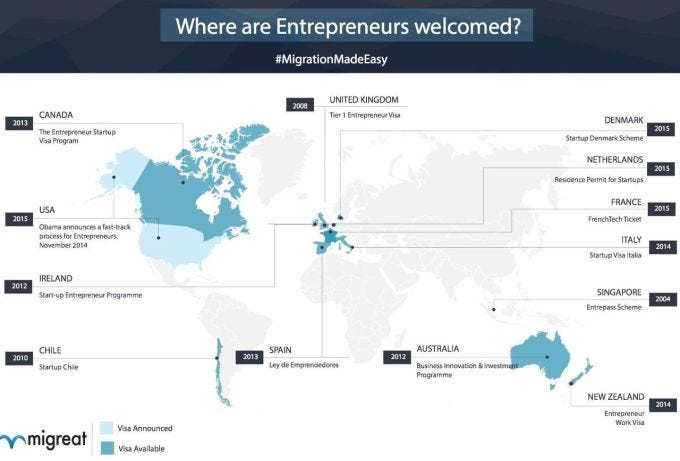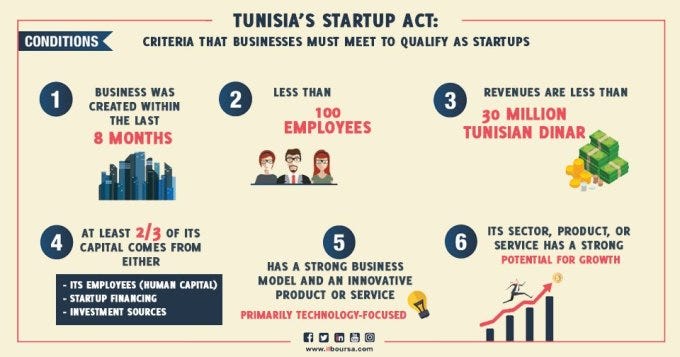Barring any major disapproval, Ghana is looking to have its own Startup Act in support of the country’s growing startup ecosystem. Ghana’s Ministry of Business Development has promised to lobby for the enactment of a new Startup Act in the country.

“We (committee) have consulted legal brains, Tunisian and Senegal startup act and have come out with a proposed bill for the Ghana Startup Act which we intend engaging with the youth in the private sector to make sure it represents their inputs. We will present this to the Ministry after we are done with our consultation/engagement with the start-up community,” CEO of Ghana Chamber of Young Entrepreneurs, Mr. Sherif Ghali, said when a committee set up to that effect paid a courtesy call on Ghana ’s Ministry of Business Development.
Here Is All You Need To Know
- The committee, supported by the Private Enterprise Federation is charged with the responsibility to rally support for the Act and also work with the Ministry to ensure that the content in the Act is relevant and timeless.
- The Committee members are made up of different youth entrepreneurship organizations within the ecosystem. The Chamber identified the need for the Ghana Startup Act and has been working on its since 2018.
“Recently, we saw the need to bring on board other organizations within the ecosystem to help champion this cause. Just like Tunisia and Senegal who now have their Startup Act, the Act was championed by various youth entrepreneurship organizations and that gave them the advantage to collectively push for the Act,” he noted.
- The Chief Director in the Ministry Alhaji Hafiz Adam said the Ministry has in its plans to push for the Entrepreneurs/SME’s Act which is in line with the Ghana Startup Act.

The Era of Startup Act
The first specific startup law globally was passed in Italy in 2012, and Africa is increasingly catching on. A host of countries, with Mali also at an advanced stage, are working towards Startup Acts.
Tunisia leads other African countries in bold startup legislations. The Tunisian Startup Act, passed in May, 2018, also reveals the following similarities with the Malian Startup Act.
Also Read: South African Real Estate Startups Shock Other African Startups With This New Move
- Tunisian Startup Act defines startups as an entity having legal existence not exceeding eight (08) years from the date of its constitution,while Mali’s makes provision only for startups less than four years.
- More than two-thirds (2/3) of Tunisian startups’ capital must be natural persons, venture capital investment companies, collective investment funds, investment, seed money and any other investment body according to the legislation in force or by foreign Startups to qualify as startups under the Act.

- The business model envisaged by the Tunisian Startup Act is one that is highly innovative, utilizing cutting-edge technology.
- Under the Act, any individual promoter of a Startup, public agent or employee of a private company, may benefit from the right to Startup Leave for creation of a Startup for a period of one year renewable once
- Any promoter of a Startup may benefit from a Startup scholarship for a duration of one (01) year. Only three (03) shareholders and full-time employees in the relevant Startup may however benefit from the scholarship awarded.
- Young graduates who create startups are free from taxation for three years.
- The profits from the sale of the securities relating to the shares in the Startups are exempt from the capital gains tax.
Charles Rapulu Udoh

Charles Rapulu Udoh is a Lagos-based lawyer who has advised startups across Africa on issues such as startup funding (Venture Capital, Debt financing, private equity, angel investing etc), taxation, strategies, etc. He also has special focus on the protection of business or brands’ intellectual property rights ( such as trademark, patent or design) across Africa and other foreign jurisdictions.
He is well versed on issues of ESG (sustainability), media and entertainment law, corporate finance and governance.
He is also an award-winning writer.
He could be contacted at udohrapulu@gmail.com
